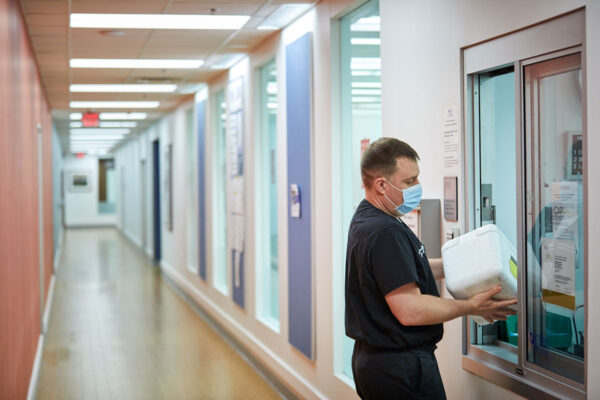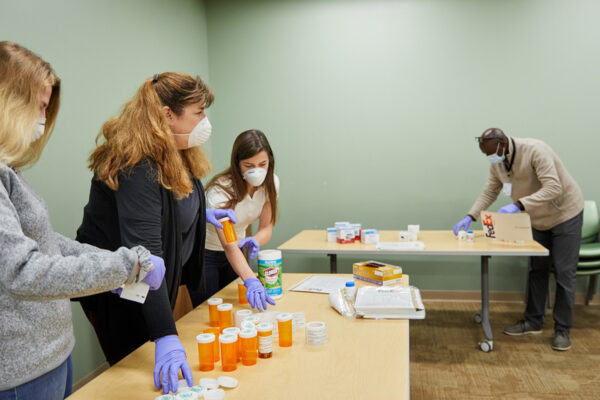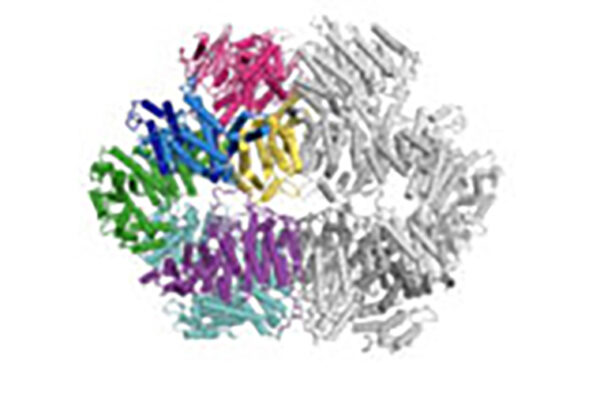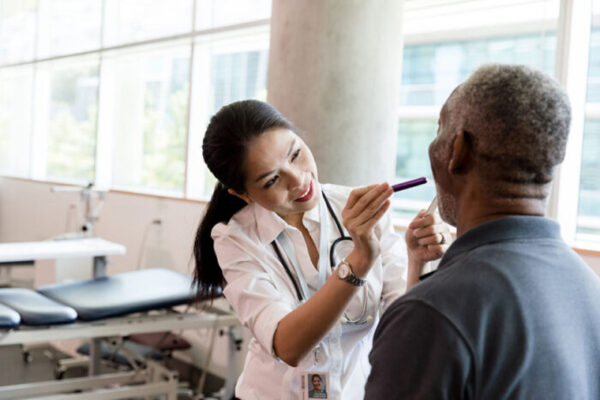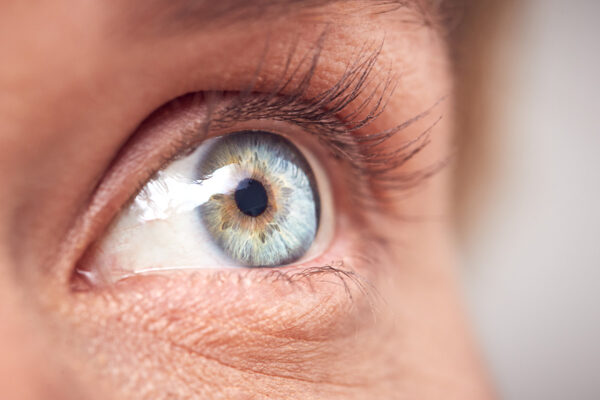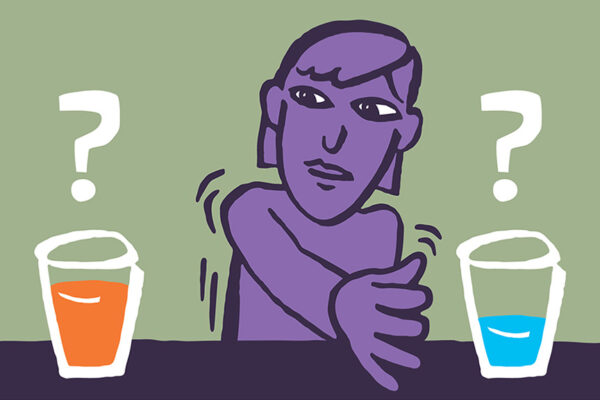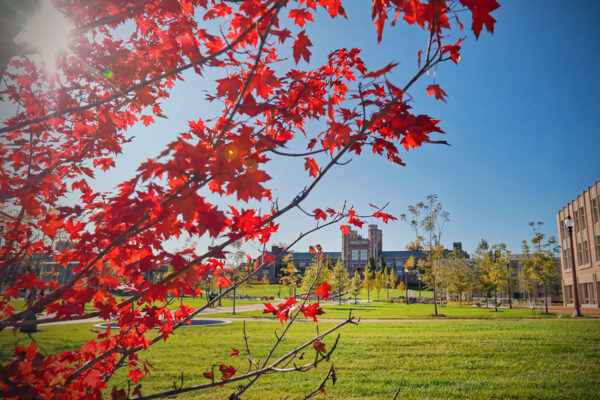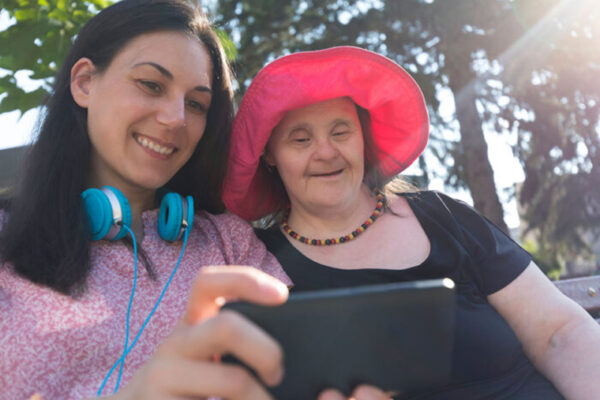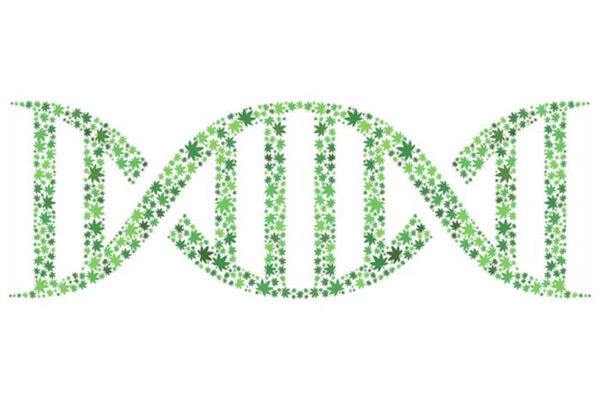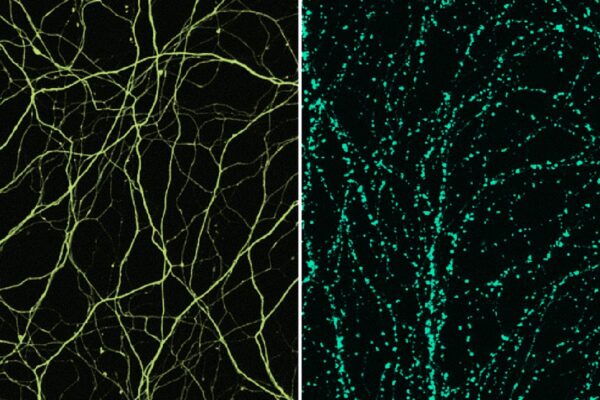Study: Respiratory failure in COVID-19 usually not driven by cytokine storm
A study led by School of Medicine researchers showed that, contrary to expectations, most people with severe COVID-19 do not suffer from unbridled inflammation. The findings suggest that anti-inflammatory therapies may not be helpful for most COVID-19 patients.
Fluvoxamine may prevent serious illness in COVID-19 patients
Researchers at Washington University School of Medicine have found that the drug fluvoxamine may help prevent deterioration in COVID-19 patients, making hospitalization less likely.
Making cancer cells more susceptible to dying
Cancer cells can survive even after being hit with high doses of chemotherapy or radiation, but a School of Medicine team working to make treatment more effective is focusing on ways to tweak the inner machinery of cancer cells to make them more susceptible to dying.
Improving emergency care for people with dementia is focus of new grant
Washington University School of Medicine is one of four institutions to receive a National Institutes of Health (NIH) grant to study how to improve emergency care for adults with dementia. For the project, experts in emergency medicine, geriatrics and dementia will identify and address gaps in emergency care.
Cornea appears to resist infection from novel coronavirus
Although viruses such as herpes simplex can infect the eye’s cornea and Zika virus has been found in corneal tissue and tears, new School of Medicine research suggests the cornea can resist infection from the novel coronavirus.
New insight into how brain neurons influence choices
By studying animals choosing between drink options, School of Medicine researchers have found that the activity of certain neurons in the brain leads directly to the choice of one option over another. The findings could lead to better understanding of how decision-making goes wrong in conditions such as addiction and depression.
Emergency Management receives full accreditation
Washington University in St. Louis’ Emergency Management Department has been awarded full accreditation by the Emergency Management Accreditation Program, an accomplishment only eight universities in the country have achieved.
Alzheimer’s in adults with Down syndrome focus of multicenter NIH grant
People with Down syndrome nearly always develop signs of Alzheimer’s as they age. School of Medicine researchers are taking part in a multisite study to understand how Alzheimer’s develops in this population, with a long-term goal of finding ways to prevent or treat the disease.
Uncovering genetic roots of marijuana use disorder
An international team of researchers led by scientists at the School of Medicine has identified two regions in our DNA — one newly identified and a second that replicates a past finding — that appear to contribute to one’s risk of becoming dependent on marijuana.
Startup company founded by Washington University scientists acquired by Eli Lilly
Pharmaceutical maker Eli Lilly and Company has purchased Disarm Therapeutics, a startup biotechnology firm founded by researchers at Washington University School of Medicine to speed the development of treatments for multiple neurodegenerative conditions.
View More Stories
